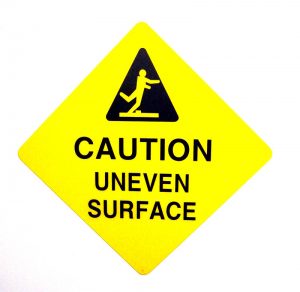(Just a note, this post is from our archives. Some references and links may be from past years.)
After I did a blog post on Tales From The Submission Inbox, lots of writers asked on twitter and Facebook what exactly I meant by “uneven writing.”
It’s a great question and I’ll do my best to try and answer it. It’s tough though. Because I can always recognize it but it’s harder to describe.
Here are three examples:
1) Uneven writing is when an author has some writing talent but hasn’t quite mastered the craft fully. So one sentence will be terrific and then it will be followed by a paragraph of something clunky.
Or,
2) A scene is clipping along great and then the writer stops and throws in back story at a wrong moment that interrupts the flow of the narrative.
and,
3) Writer has some great characterization that’s clear in the scene unfolding and then suddenly the writer tells the reader what they need to know XYZ about this character but they actually didn’t have to. It’s extraneous because it was already apparent in the scene.
It’s good stuff clashing with what I always label, beginning writing mistakes.
Creative Commons Photo Credit: Cory Doctorow


I’ve finally gotten to where I can see my own uneven writing–most of the time. Recognizing a problem is truly the first step to fixing it. While I’ve been guilty of all three of these examples, my most common issue is repeating things that have already been shown. Finding and eliminating these is certainly helping to lower my word count. 🙂
Kristin, this is such a useful post for writers. Another aspect of uneven writing occurs when the author suddenly decides a passage, episode or scene is not gripping enough (maybe they’ve done so much work on it that ii feels laborious) so they throw in a bit of verbal drama, in dialogue or description, that is not intrinsic to that part of the novel and actually stands out rather awkwardly. This is often the result of a brief lack of confidence on the writer’s part, or (as above) the consequence of staring too long at something you’re working hard on. The key is not to overreact, but to move on within the flow and tone of what you’ve already created. I had a dear editor friend who was a very good writer, and who read my first two novels with an eagle eye. She would simply take a pencil and scrawl OTT in the margin whenever I committed this misdemeanour. At the beginning I had to ask her what she meant! I was mortified when she explained it meant Over the Top. Oh dear. I do believe she cured me of going OTT — so new writers, take heart: you can correct this type of unevenness very easily by keeping up the courage of your convictions — artificial drama is not necessary, anywhere in your work.
Interesting definitions.
Thanks for clearing that up.
In fiction uneven writing often comes from switching between intuition and intellect, writing from feeling and writing from thinking. In my experience writing is a flow of ideas, words and expressions at its best and most creative. But of course we also need to edit 🙂